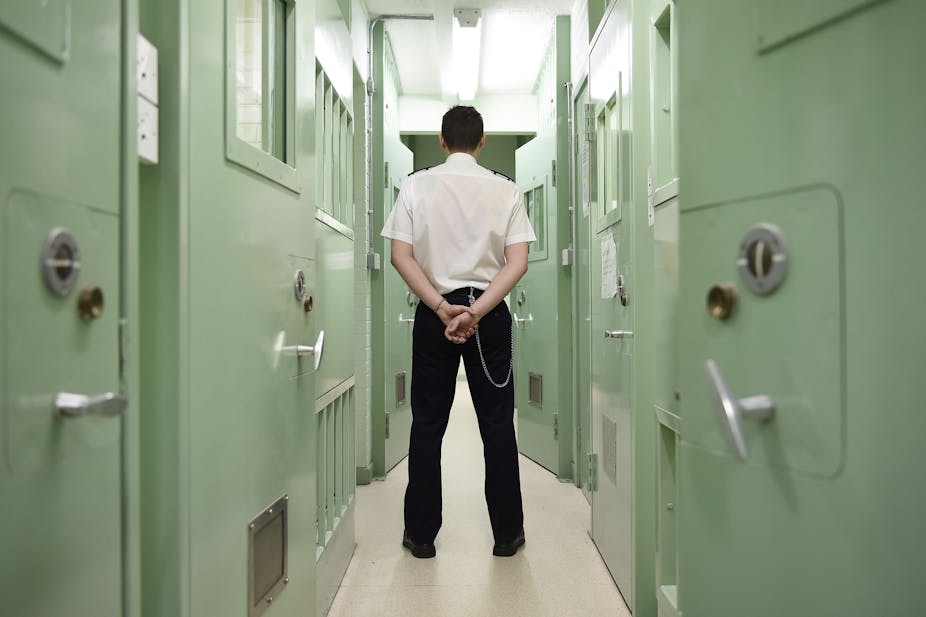Short prison sentences of 12 months or less should be used only as a last resort, according to the justice secretary, David Gauke, speaking in a recent interview with the Sunday Times. He emphasised that short prison sentences don’t have a very successful record of reducing reoffending compared to other forms of punishment.
The reoffending rates for prison sentences of a year or less were at 64.5% in the last three months of 2016 – the latest period for which statistics have been published – rising to 67% for sentences of six months or less. This is much higher than the 38% of people who reoffend after being served a court order, such as a community order or suspended sentence, and the 29% reoffending rate of those in prison for 12 months or more. Not to mention the fact that the annual cost of reoffending was estimated to be somewhere between £9.5 and £13 billion in 2015.
Campaign against short sentences
Reoffending rates from short sentences have been a cause for concern for years. In 2001, the Halliday review into sentencing suggested that short sentences provided the most serious problems out of the range of available sentences as they served little rehabilitative use. A little over a decade later, the seeming inability of short sentences to reduce reoffending was an important factor in the coalition government’s Transforming Rehabilitation reforms in 2013, which put probation contracts out to competitive tender. Yet, despite these efforts, the reoffending rates for short sentences remain higher than those for community sentences, or even longer prison sentences.
There are several potential reasons for this, most of which lie in the very use of prison as a short-term option. Prison sentences generally are known to have a long-term and negative impact on a person’s employment prospects. They also cause disruption to family time and the development of positive relationships, all of which support successful rehabilitation. At the same time, prisoners serving short sentences are rarely there long enough for any positive, rehabilitation work to be undertaken.
Short prison sentences do not reduce the risk of reoffending, because they are not designed to do so. Rather, they simply displace this risk to a later date.
Meanwhile, research has shown the effectiveness of community-based sentences in reducing reoffending – at least compared to short prison sentences – and that community supervision is less likely to have a negative impact on employment and family time. It arguably makes sense, then, that community sentences should be chosen over the use of prison wherever possible. But while Gauke’s suggestion of a reduction in the use of short prison sentences was welcomed by many, it has come at a bad time considering the current condition of other parts of the criminal justice system.
Red flags and staff shortages
Back in 2017, I wrote for The Conversation about the rise in serious further offences by those serving community orders since the privatisation of the probation service in 2013. Part of the reason for this, I argued, was increasing numbers of offenders “on probation” monitored by fewer staff, meaning that red flags and causes for concern were being missed.
Since then, it appears little has changed and the situation may even have worsened. Recent figures show an increase of over 200 reviews looking into serious further offences by people on probation between 2014 and 2018. Such is the current condition of the probation service, that in mid-2018, the government decided to end all private probation contracts two years early in 2020.
The problem is largely related to an unmanageable staff to offender ratio. In 2018, MPs on the the Justice Select Committee suggested that probation service privatisation had resulted in the delivery of probation services to more that 40,000 extra offenders, at a time when the service itself was carrying more than 1,000 staff vacancies nationally. While the scales are tipped in this way, the probation service arguably remains unfit for purpose.
In the year to June 2018, around 61,500 people were given custodial sentences and of those, 47% (roughly 29,000) were sentenced to six months or less. Given the average reoffending rate of those serving short sentences, roughly 18,000 are predicted to reoffend within 12 months of release. While it’s clear that prison is not the place for these offenders, the current state of the probation service suggests that probation is not the place for them either. The only way any reduction in the use of short sentences will work is if the probation service is fixed first.

